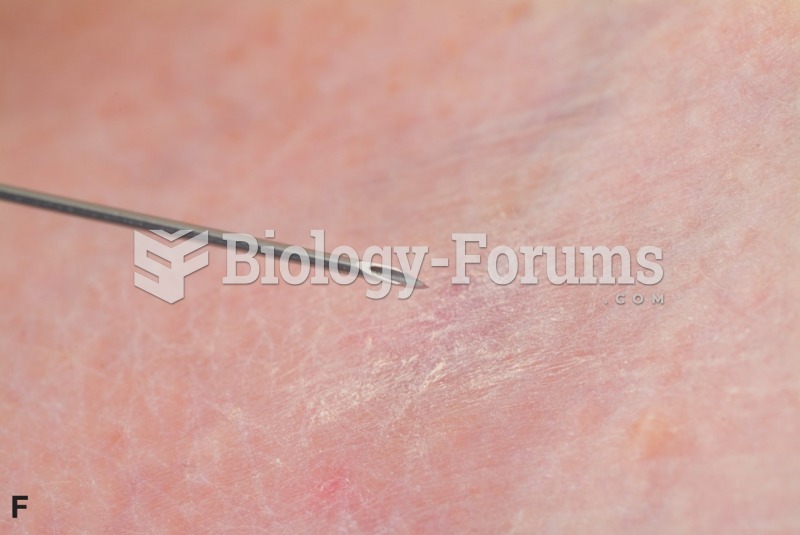|
|
|
The longest a person has survived after a heart transplant is 24 years.
A strange skin disease referred to as Morgellons has occurred in the southern United States and in California. Symptoms include slowly healing sores, joint pain, persistent fatigue, and a sensation of things crawling through the skin. Another symptom is strange-looking, threadlike extrusions coming out of the skin.
The largest baby ever born weighed more than 23 pounds but died just 11 hours after his birth in 1879. The largest surviving baby was born in October 2009 in Sumatra, Indonesia, and weighed an astounding 19.2 pounds at birth.
In the United States, there is a birth every 8 seconds, according to the U.S. Census Bureau's Population Clock.
After a vasectomy, it takes about 12 ejaculations to clear out sperm that were already beyond the blocked area.







